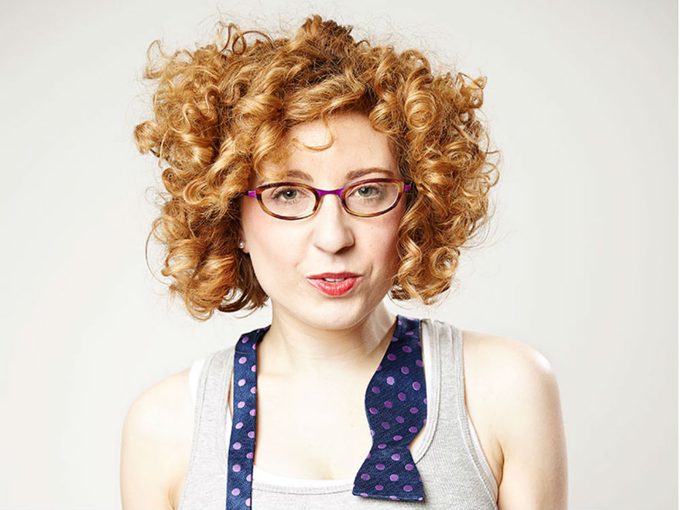The Cost Of Having A Baby: Infertility Doesn’t Have To Make You Feel Alone
Infertility can make you feel alone and isolated. And it can even cause issues in your relationships. But Wendy Litner wants to change all that.

What is the cost of having a baby?
For lawyer-turned writer Wendy Litner, 37, it was a shock to learn that she might not be able to conceive a baby naturally. It is unexpected for most couples, actually. But the experience is quite lonely. “While I was struggling through infertility treatments, I felt like no one was talking about it,” says Litner. “Sure, Monica and Chandler struggled with infertility over a decade ago, but everyone I knew on Facebook were posting pregnancy announcements. I was determined to share my experience with infertility by writing about it for as many forums as I could and I began writing my web series about a couple struggling through a round of IVF [in-vitro fertilisation].” (Her series How to Buy A Baby premiers on cbc.ca/watch on November 13, 2017.) Another surprise: Dealing with this health issue also made her feel empowered about her own health, which is her #BHmoment.
Her baby – her web series
“I had always assumed that having children would be a matter of my choosing,” says Litner. “When my husband and I began trying to have a baby, I was surprised to discover that I had a low ovarian reserve and that my optimal time for having a baby had already passed. But I did yoga!? How could this have happened!? It was this experience that inspired me to talk openly about my fertility and encourage others to talk about theirs as well. To that end, I have created a web series called.” (Do you know what endochrine disruptors are? They can affect fertility.)
On sharing her infertility story
“Before I was ready to try for a baby, I felt like information around fertility was always coming at me from a place of fear,” she says Litner. “People would warn me that my biological clock was ticking, and I resented their chiding. However, I wish I knew that I could easily get my ovarian reserve tested in my 20s, so I could understand what my own fertility trajectory looked like. I hope to inspire others to approach their fertility from a place of empowerment and education, rather than a place of fear.”
Dealing with infertility alone looks a lot like this
“In terms of taking charge of my own fertility, I got a referral from my GP to a doctor at a fertility clinic,” says Litner, adding that the wait for a specialist took a few months. “After meeting with the fertility doctor, I underwent a number of tests, including a hysterosalpingogram (HSG) which checked the condition of my fallopian tubes. Once all my test results were received, the fertility doctor came up with a protocol for treatment. Treatments, such as IUI and IVF happen over the course of a menstrual cycle.” (A recent study suggests that pesticides on foods may have a negative impact on IVF. Find out more about it.)
The learning curve
“I learned that I am not alone in my infertility. One in six couples in Canada struggle to conceive.”
The upside of her experience
“I feel more empowered around my health generally. Having come off all the hormones from rounds of IUI and IVF, I feel more inspired to take charge of my health by meeting with a nutritionist to learn the best diet for me, by exercising more regularly, and not letting health issues go.”
Advice to other women
“If you’re in your 20s, ask your doctor to test your ovarian reserve: Not because your biological clock is ticking – there is no sense in trying for a baby before you are ready – but because you deserve to know what your fertility looks life,” says Litner. (Here are some facts most women don’t know about infertility and miscarriage.)
“We are forging an online community of incredible people who are or have struggled with infertility. If you or someone you know is struggling to conceive, no one needs to suffer alone. Please join us @howtobuyababy.”




